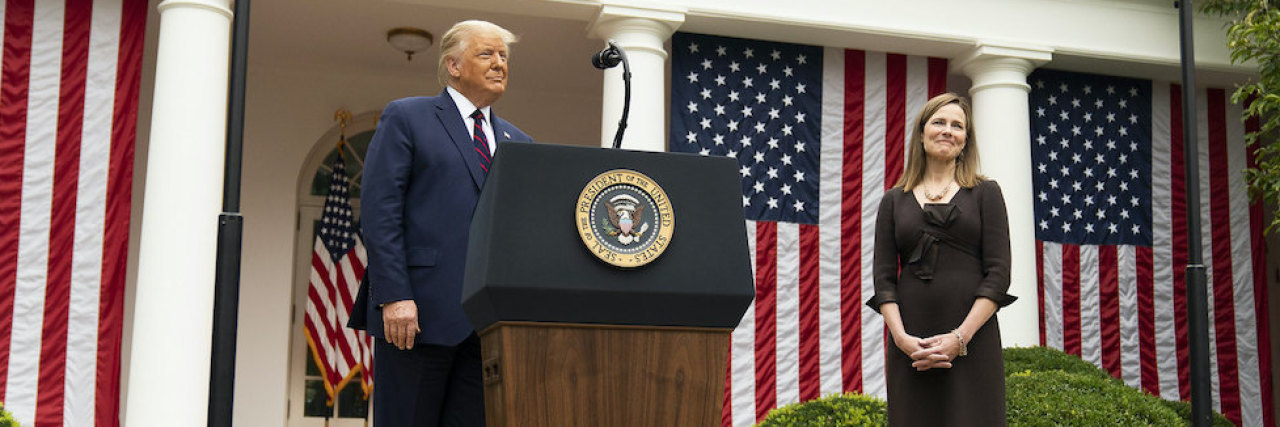Having a Child With a Disability Doesn't Mean You're Above Criticism
Editor's Note
This story reflects an individual’s experience and is not an endorsement from The Mighty. We believe in sharing a variety of perspectives from our community.
Issues matter. Records matter. Individuals matter.
On Monday, Judge Amy Coney Barrett will most likely be confirmed by the Senate as our new Supreme Court Justice. The ninth justice. This is an important position that can change the court for a generation or more.
In the past month, I have heard parents and families state that Judge Barrett will be an ally to people with disabilities simply because she has a young child with Down syndrome. As the mother of a young graduate with Down syndrome, I understand that wish, that tendency to believe. But the fact is, this is a vast assumption. Just as voting blocks are not monolithic, judges and parents vary widely in their opinions, life experiences, assumptions and actions.
Judge Barrett famously advocated for a law student she had at Notre Dame who was blind. That was wonderful. While kindness on a personal level is always welcomed and should not be dismissed, rights are what people in the disability community have been fighting for. Having been in the disability community for over 20 years now, I have learned to respect several national organizations who fight for the civil rights of people with disabilities.
Many disability advocates have united to explain their concerns about Judge Barrett. Here are three points to consider and research. There is consensus on these issues:
1. Judge Barrett’s possible ruling on the Affordable Care Act (ACA) in a case that the Supreme Court will hear on Nov. 10. Judge Barrett has written legal scholarship that Justice Robert’s decision in the first ACA challenge was wrong, meaning it’s fair to wonder if she’ll protect it. The ACA, including its protections for people with pre-existing conditions, is a paramount concern for people with disabilities. It is a life and death matter for many.
2. As a judge, Barrett disagreed with her fellow judges in a ruling by the Seventh Court of Appeals finding that the U.S. Department of Homeland Security public charge rule illegally discriminates against disabled people. (I implore all to put yourself in the shoes of someone in crisis fleeing war or other atrocities, trying to legally enter the U.S., and being denied entry because your child has a disability.) The Trump Administration has already asked the Supreme Court to review this case, and how the Court interprets the reach of the disability laws would impact other cases.
3. In 2019, Judge Barrett joined a Wisconsin decision that upheld the state’s right to discriminate against students with disabilities who requested transfers. The decision stated that the parents failed to show that Wisconsin’s open enrollment statute was discriminatory.
None of us actually know how a Supreme Court Judge will rule in any given case. Chief Justice John Roberts has proved that time and time again. That fact alone should caution us against making assumptions. Don’t assume proximity to a disabled person means you have their best interests in mind, and just because someone has a child with a disability doesn’t mean they’ll get all the issues right. We should listen to what disabled adults are telling us, and then make decisions based on facts, the candidate’s record, and our values, family and life.
As an independent voter, the only purpose of this piece is to caution us all against painting each other with one brush. Especially fellow parents. I dream of a day when Americans from all walks of life and political parties, unify for civil rights. Until that day comes, we must stay informed, vigilant and open minded.
Flickr photo via The White House

